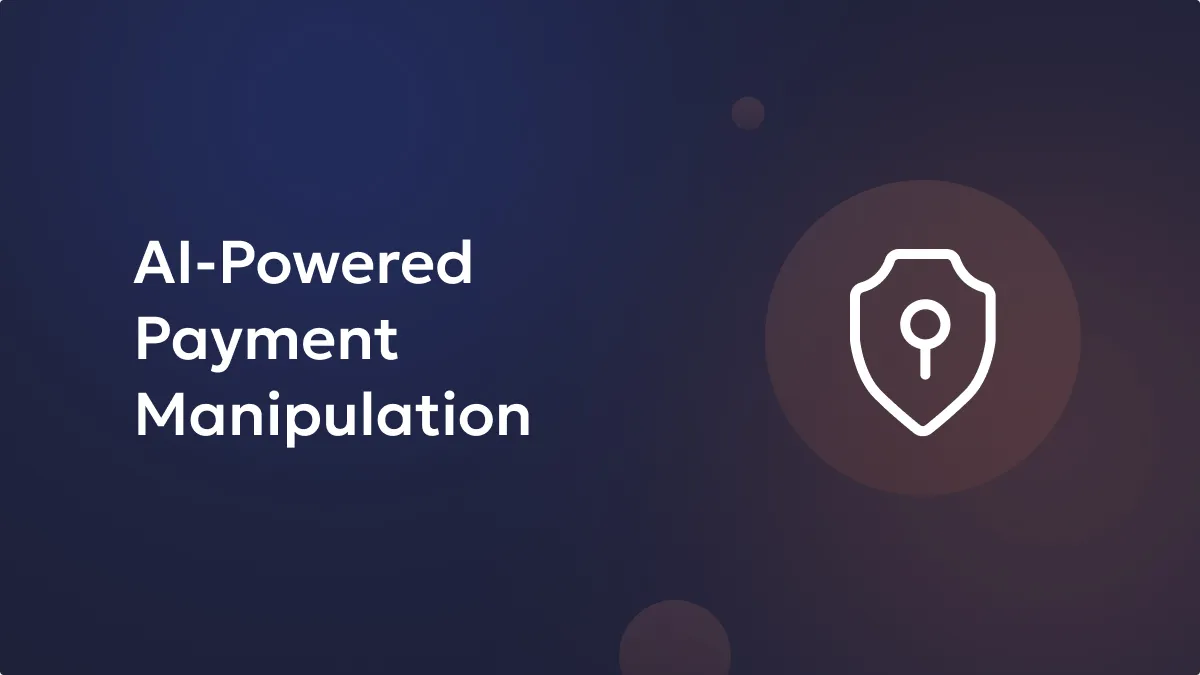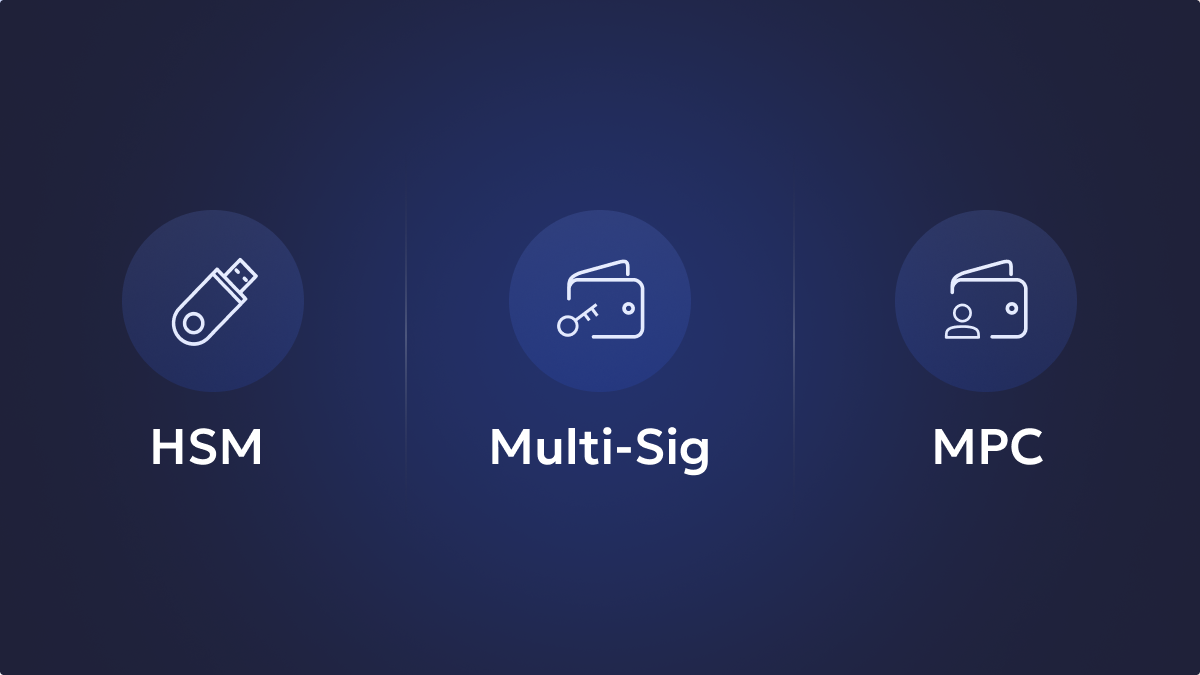The blockchain cryptocurrency market has surged past the one-trillion-dollar mark, reflecting the growing enthusiasm for digital currencies and decentralized finance. With new virtual currencies emerging every next day, prospective crypto investors are seeking reliable platforms that enable them to trade various digital assets efficiently as well as offer the ability to participate in staking crypto.
Much like traditional stock and commodity exchanges, crypto exchanges serve as platforms where participants can engage in trading a wide range of cryptocurrencies.
Especially in light of recent events such as the issues faced by leading crypto exchanges like FTX and the Binance-SEC controversy, there is a heightened interest in gaining a deeper understanding of these platforms.
Unlock the potential of digital assets for your institution
In response, our experts have meticulously crafted a comprehensive guide on cryptocurrency exchanges. This guide covers their functionality, diverse types, advantages, and, most importantly, it highlights all the warning signs that potential customers should be vigilant about when considering a cryptocurrency exchange or crypto wallet infrastructure.
What is Crypto Exchange?
Numerous individuals who invest in digital assets rely on specialized crypto exchanges to facilitate conversions between fiat currencies (such as the US dollar) and cryptocurrencies (like Bitcoin), switch between different cryptocurrencies (e.g., from Bitcoin to Dogecoin), and convert cryptocurrencies back into fiat currency.
The majority of these types of crypto currency exchanges are centralized entities responsible for matching buyers and sellers of digital assets, typically charging commissions or fees for their services. Additionally, many blockchain cryptocurrency exchanges function similarly to traditional banks by accepting customer deposits, lending these funds to undisclosed third parties, and capitalizing on the interest rate differential between what they pay depositors and charge borrowers.
Secure and manage your digital assets with Liminal
Despite exchanges promoting themselves as secure and convenient platforms for asset trading, their use often entails substantial risks, as exemplified by recent incidents involving Celsius, Voyager, FTX, and BlockFi.
While many cryptocurrency investors are aware of the inherent risks tied to investing in digital currencies and crypto staking, only a limited number truly comprehend the concealed and at times calamitous dangers linked to entrusting their cryptocurrencies to exchanges, rather than picking a hardware wallet for cryptocurrency.
How Does A Crypto Exchange Functions?
When you create an account on a cryptocurrency exchange and setup wallets for cryptocurrency storage, it grants you the ability to engage in the buying and selling of various cryptocurrencies, such as bitcoin (BTC), ether (ETH), litecoin (LTC), polkadot (DOT), dogecoin (DOGE), and many others. Depending on the specific exchange and the types of crypto wallet, you can either acquire cryptocurrencies using a fiat currency like the U.S. dollar or swap one cryptocurrency for another.
The larger and more established a cryptocurrency exchange is, the greater the likelihood that it offers a diverse selection of cryptocurrencies. Nonetheless, it’s advisable to verify the availability of your desired cryptocurrency before setting up an account or crypto wallet India.
On a cryptocurrency exchange, you have the option to use conventional fiat currency for purchasing cryptocurrencies, or you may have the opportunity to trade one cryptocurrency for another. You can also consider converting your cryptocurrency back into regular currency, keep it within your account for future transactions, or in the best staking crypto-wallet or make a cash withdrawal. The range of services available can differ depending on the specific exchange or application you opt for. For instance, certain services may not permit the transfer of your cryptocurrency to an external crypto wallet, such as cold wallet crypto platform.
Types of Crypto Exchange
A cryptocurrency exchange serves as a platform where you can engage in the buying and selling of digital currencies. These exchanges come in various forms, offering different products and services tailored to varying user needs. It’s crucial to assess your specific financial objectives and risk tolerance before selecting a crypto exchange. Here are some distinct types of cryptocurrency exchanges and crypto custody platform you might encounter:
Crypto-Brokers:
Certain traditional securities brokers, while not purely cryptocurrency exchanges, act as intermediaries connecting investors with cryptocurrency markets. Users can visit online brokers to purchase cryptocurrencies at prices determined by the broker. Over-the-counter (OTC) brokers, also known as OTC desks, are typically used for executing large orders (think 200 BTC, not 2 BTC). This approach helps prevent slippage, which can occur when executing market orders on exchanges.
Traditional Cryptocurrency Exchanges
These platforms facilitate the trading of digital assets based on daily market prices. Transaction fees are often charged for their services. Some exchanges exclusively deal with cryptocurrencies and additionally offer access to crypto currency wallet, while others enable users to exchange fiat currencies, such as the U.S. dollar, for cryptocurrencies like Bitcoin (BTC). Traditional exchanges generally fall into two categories: centralized and decentralized crypto exchange in India and across globe.
Centralized Cryptocurrency Exchanges
Centralized exchanges are managed by third parties, often referred to as exchange operators, to ensure the smooth operation of customer registration and trading. They make it easy to link your bank account or debit card for cryptocurrency purchases. However, this convenience typically comes with fees imposed by the exchange operator, in addition to the cost of the assets. On many centralized exchanges, users can trade digital assets using both fiat currency and other cryptocurrencies as well as store them on exchange-based cryptocurrency wallet India.
Decentralized Cryptocurrency Exchanges
The principles behind blockchain and cryptocurrency emphasize the absence of a central authority overseeing currency movement and use. A decentralized cryptocurrency exchange, or DEX, operates without third-party supervision, is open-source, and relies on peer-to-peer (P2P) trading. DEXs often require more technical expertise and a deeper understanding of cryptocurrencies compared to centralized exchanges. This decentralized approach makes them the best crypto exchange in India.
Benefits of Cryptocurrency Exchanges
For most individuals, their introduction to the world of cryptocurrency typically starts with a crypto exchange, as it represents the simplest platform for acquiring digital assets. It’s worth noting that the primary functions of most crypto wallet hardware and software platforms are limited to sending, storing, and receiving cryptocurrency, setting them apart from crypto exchanges.
Here are some advantages of using different types of crypto currency exchanges:
- User-Friendly Experience: Crypto exchanges offer a user-friendly interface that is especially welcoming to newcomers in the crypto space.
- Regulated Environment: These platforms provide a relatively regulated environment for buying and selling cryptocurrencies, offering a sense of security and legitimacy to users.
- Tax Assistance: Certain blockchain cryptocurrency exchanges go the extra mile by providing users with tax forms, simplifying the often-complex process of calculating taxes related to cryptocurrency transactions.
Things to Check Before Selecting a Crypto Exchange
Cryptocurrency exchanges, encompassing both centralized and decentralized models, are relatively recent innovations. The first crypto exchange, Bitcoin Market, commenced operations on March 17, 2010. Therefore, conducting thorough research is paramount when considering which exchange to utilize. Given the inherent volatility of cryptocurrencies and the historical susceptibility of certain exchanges to hacking incidents, a comprehensive evaluation is crucial. Key factors to assess when selecting a crypto exchange and their crypto wallet infrastructure include, but are not limited to:
Deposit and Withdrawal Limits
Usually, most exchanges serve uninterrupted user withdrawal requests. Still, examine the restrictions placed on deposits and withdrawals, ensuring they align with your trading needs.
Fees & Payment methods
Evaluate the fee structure of the exchange and the crypto currency wallet provider, encompassing trading fees, withdrawal fees, storage fees, and any other applicable charges. Additionally, confirm the availability of payment methods that suit your preferences and convenience.
Regional Restrictions, Verification and Regulations
Most exchanges adhere to compliance rules. Understand the exchange’s compliance with regional regulations and whether it accommodates users from your location. Additionally, determine the level of identity verification and documentation necessary to use the exchange.
Reputation and partnership with a regulated custodian in the operational jurisdiction
Investigate the reputation of the exchange by reviewing user feedback, online reviews, and its track record in the cryptocurrency community. Initially, determine whether the crypto exchanges you’re considering serve customers within your residing state and country. This inquiry is pivotal, given the intricate web of rules and regulations governing cryptocurrency. If the response is negative, it implies that you won’t be eligible to utilize the particular exchange.
Moreover, some exchanges maintain distinct website addresses tailored to specific countries. For instance, U.S.-based users might need to access “exchange.us” instead of the generic “exchange.com.” The jurisdiction of an exchange not only defines its primary market but also delineates where it is permitted to operate, adhering to the cryptocurrency-related regulations and guidelines in effect.
Extended support for chains and tokens
Beginner cryptocurrency users often have numerous inquiries about the fundamentals of cryptotokens, crypto custody platform, and exchange operations. It’s likely that you’ll encounter challenges along the way, this is where responsive customer support steps in.
There are situations where the need for assistance becomes urgent, particularly when your finances are on the line. Given the swift pace of crypto markets, waiting days for customer support responses can result in tangible financial impacts. Hence, investors should check the exchange’s customer support reputation. Verify their promptness in addressing issues, assess customer satisfaction levels, and ascertain the exchange’s commitment to prioritizing customer service.
Highest level of security measures
Cryptocurrency can appear untrustworthy due to limited government oversight and its association with the black market. However, reputable exchange platforms prioritize security. They employ robust measures, including two-factor authentication (2FA), encryption, and cold storage (offline storage) to safeguard your personal and financial data, safeguarding your holdings against theft and cyberattacks.
It falls upon you to identify the cryptocurrency exchange and digital assets that align with your specific requirements, budget, risk tolerance, and security expectations. Additionally, be mindful that some exchanges exclusively offer mobile accessibility, while others necessitate high-powered specialized computers. Furthermore, each crypto exchange varies in terms of security measures and associated fees.
Proof of reserve report
Ensure that the exchange you opt for shares user fund segregation with Proof-Of-Reserve report. Proof of reserves (PoR) help validate that the customer assets held by a cryptocurrency exchange or financial institution accurately match the quantity of assets reserved by the company on behalf of its customers. PoR has gained substantial attention as the central method for cryptocurrency investors to verify the security of their funds. Additionally, it serves as a valuable mechanism for crypto platforms, affirming their solvency by demonstrating their possession of sufficient assets to cover both trades and withdrawals.
Conclusion
At first glance, a cryptocurrency exchange may appear straightforward, serving as a platform where one can buy and sell various types of digital currencies. However, as is often the case in the cryptoverse, exchanges can be functionally complex and demand more careful consideration from users compared to traditional stock and bond exchanges.
The critical point to bear in mind is that this web3 crypto industry, encompassing cryptocurrencies, platforms, blockchains, exchanges, staking cryptoprotocols, and wallets for cryptocurrency, largely operates without extensive regulation. This means that the familiar consistency found in conventional financial sectors, regarding investment structures and the functioning of investment firms, is less prevalent in the realm of cryptocurrency. Consequently, it’s essential to allocate extra time to grasp the fundamentals, such as whether a specific blockchain cryptocurrency exchange can operate in your jurisdiction, the associated fees, as well as selecting an appropriate crypto wallet India.
Frequently Asked Questions (FAQs)
How can users withdraw their funds from a crypto exchange?
Log into your crypto exchange account using the mobile app. Opt for “crypto” and select the asset you intend to withdraw from the provided list. Then, either paste the destination address or scan the relevant QR code. Enter the desired withdrawal amount, include a memo if necessary, and conclude by clicking on “Preview Withdrawal.”
Is it allowed to trade in crypto exchanges in India?
Cryptocurrencies, as a means of payment in India, operate without regulation by any central authority. There are no established rules, regulations, or guidelines for resolving disputes when engaging in cryptocurrency transactions. Consequently, cryptocurrency trading is conducted entirely at the risk of the investors involved.
Which types of crypto can you trade?
You can conduct research on cryptocurrencies like Bitcoin, Ethereum, Polkaot and more, and then start your investment journey using crypto exchange platforms.
Can Cryptocurrency be converted into fiat currencies via exchanges?
Yes, converting cryptocurrencies such as BTC and ETH into traditional fiat currencies like USD and EUR is a straightforward process.
What kind of documents do I need to open an account with crypto exchange?
The registration form for an exchange may request essential information from the user, including their name, gender, address, email address, date of birth, and, if necessary, a copy of their photograph. Applicants may also need to provide details from their PAN card, Aadhar card, or similar documents as part of the Know Your Customer (KYC) procedures.
What is the difference between a market order and a limit order on a crypto exchange?
Market orders are designed to be executed promptly at the prevailing market price, aiming for the fastest transaction possible. In contrast, limit orders establish the upper or lower price limits at which you are prepared to finalize a transaction, whether it involves buying or selling.
Do crypto exchanges charge fees from their users?
Indeed, most cryptocurrency exchanges typically impose fees when users execute trades. These fees commonly encompass expenses related to transferring funds to and from the user’s bank account, maker or taker fees, as well as transaction fees determined by the blockchain cryptocurrency trading volume.
Can I start trading in cryptocurrency via stock exchanges too?
No, the stock exchanges in India exclusively facilitate trades for equities, commodities, and currencies. Cryptocurrencies do not fall under their purview as they belong to the “unregulated” sector. To engage in blockchain cryptocurrency trading, individuals must utilize cryptocurrency exchanges or crypto e-brokerage firms.






